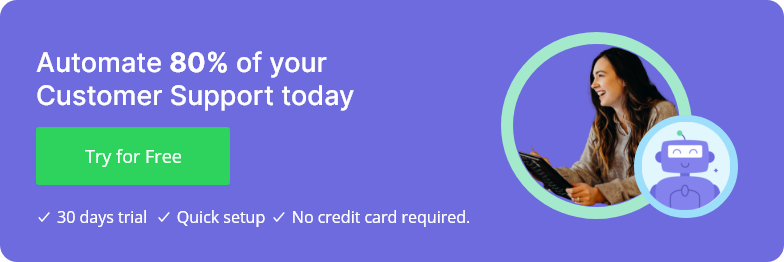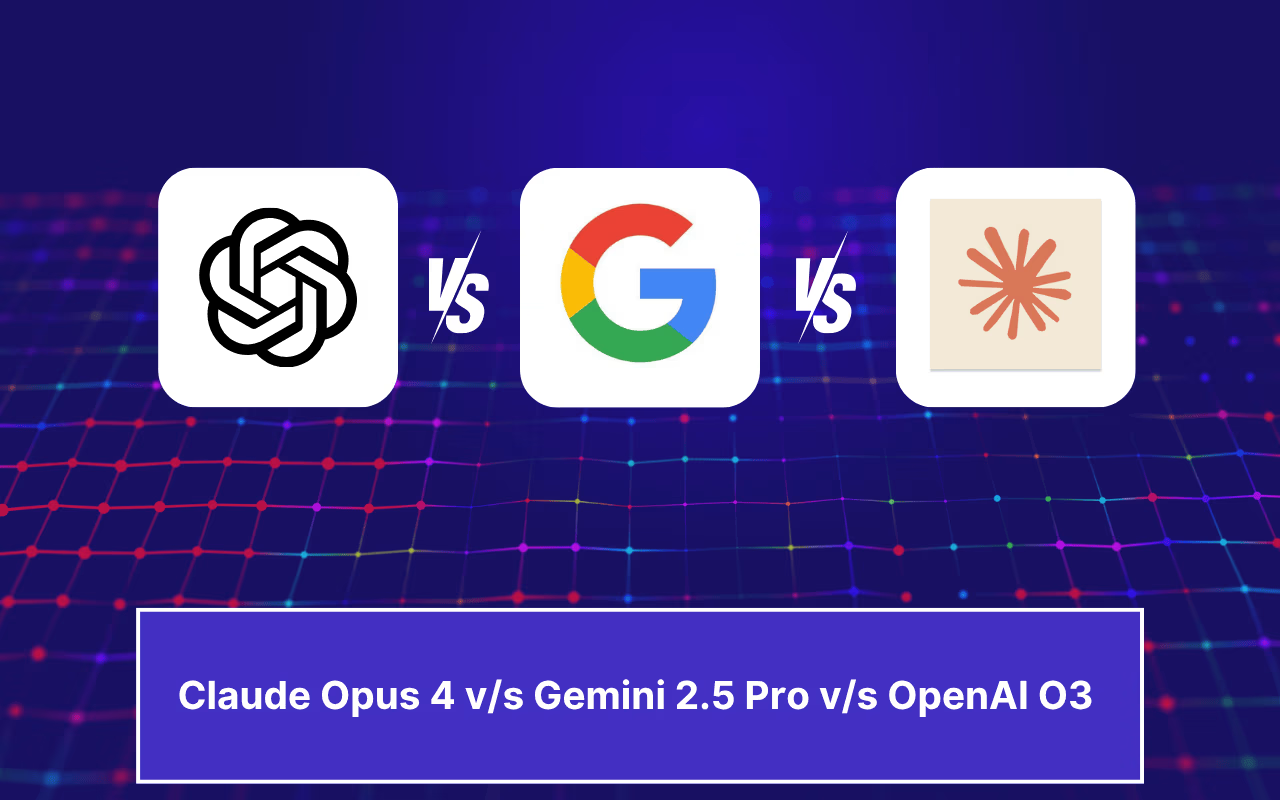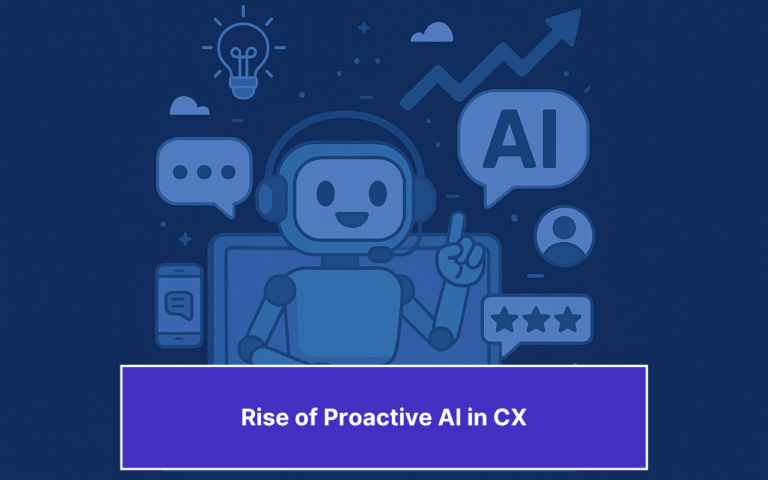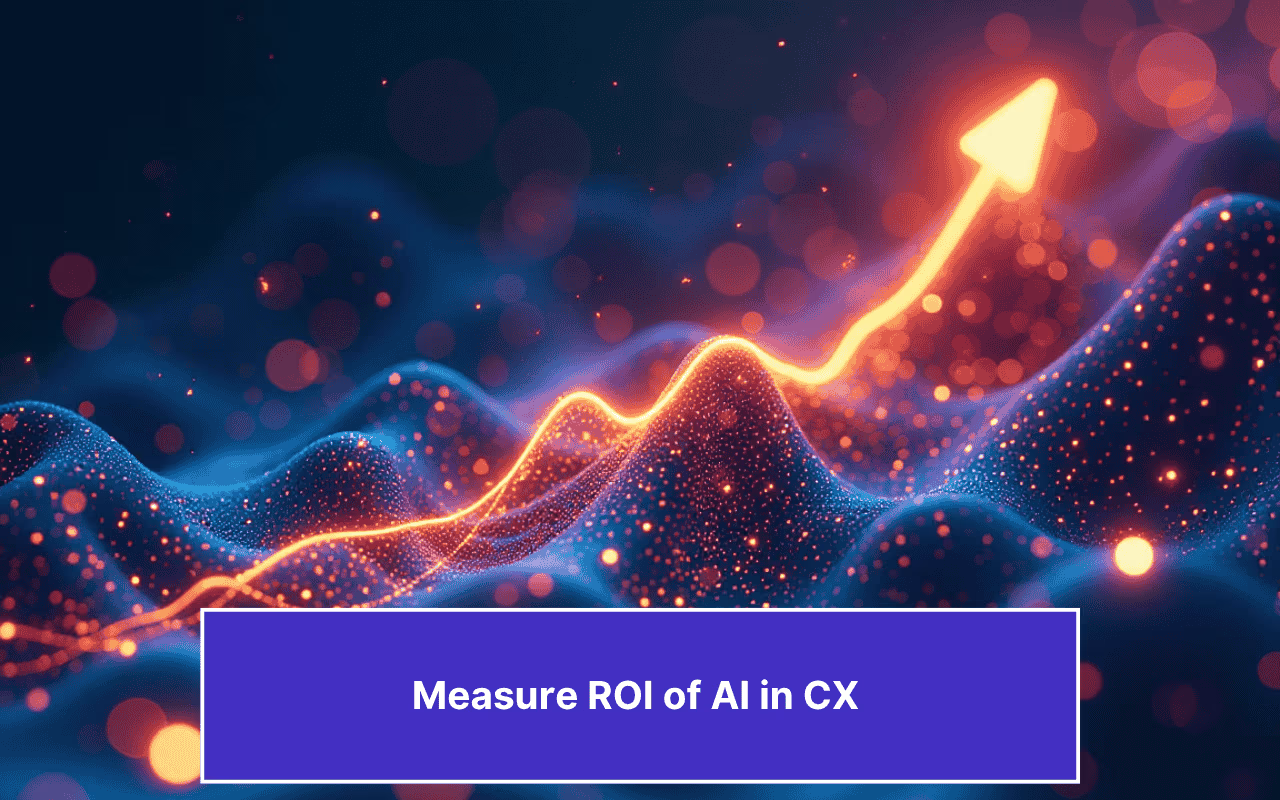Updated on February 12, 2025
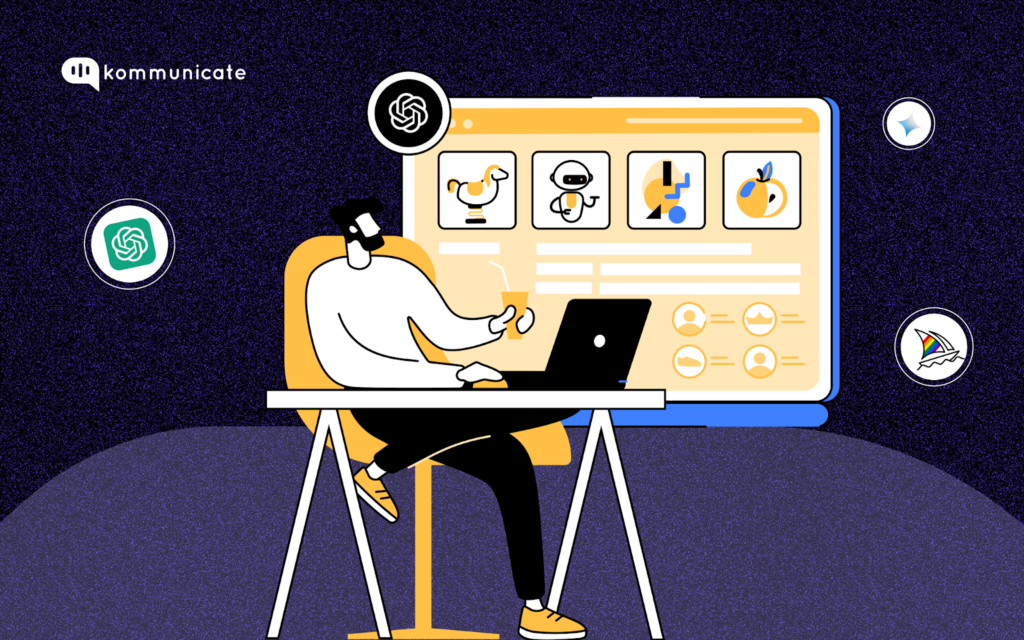
Generative AI broke all tech ceilings in 2022, and no, that is no understatement. And, 2024 is no different. We foresee some major Generative AI trends shaping up in this year, with major players like Google, Anthropic and OpenAI taking lead and introducing more advanced models such as Gemini Ultra ,GPT-4o and Claude 3.5 Sonnet.
Terms like multimodality and Shadow AI will become household, and a new wave of Generative AI tsunami will hit our shores. The numbers are also pointing in this direction. The global generative AI market is projected to rocket from $8.4 billion in 2023 to $62.4 billion by 2028.
Let us look at the top 12 generative AI trends to watch out for in 2025, which is taking the Generative AI space by storm.
- Advancements in Generative Creative AI
- Google’s Search Generative Experience
- AI-Powered Natural Language Generation
- Generative AI Integration in Siri
- Launch of the GPT Store
- AI Improvements in Healthcare
- Generative AI Becomes Everyday Tool
- Predictive Analytics Enhances Business Strategies
- Sophisticated NLP for Customer Engagement
- Growth in Hybrid AI Systems
- AI Optimizes Energy for Climate Change
- Structured AI Policies and Regulations
1. Advancements in Generative Creative AI
AI is advancing rapidly, with its use evolving almost daily. 2025 is already a monumental year for AI. Among many AI offshoots that are making the news is Generative Creative.
AI that grabs your attention from the word go. Generative Creative AI is where you use advanced algorithms to generate original and unique output in the form of artwork, music, or literature. It is like having a robot friend who can mimic artwork, books, or entire albums just by glancing at it.
Generative Creative AI can be a helpful tool and a hindrance in creative spaces like art, music, and literature. Humans having to compete against AI-generated texts or artists having to actively seek copyright agreements isn’t right. Ideally, there should be a distinct difference between AI being used as a tool and AI being used as a means to compete or steal intellectual property.
Generative AI is operational but not perfect. It can create images that look great at first glance, but if you look closer, you may see an extra finger on a person or stretched places where it was trying to improvise a picture.
Brett Downes, Founder, Haro Helpers
You can currently tell the difference between what’s human-made and what’s created by AI, and it will evolve throughout the year. But before you contemplate anything in your head, take a look at OpenAI’s Sora.

2. Google’s AI Overview
When OpenAI released ChatGPT in 2022, Paul Buchheit, the creator of Gmail himself said that Search as we know it is going to be dead. Google itself started to prioritize its LLM Bard (now Gemini) and encouraged users to ask questions to Gemini instead of “Googling” it.
And then came Generative Search Experience which was later renamed as AI Overviews.
In AI Overview, Google will seek out the information that is most relevant to a queue and then create a tailor-made answer for the user in the form of a snapshot. This snapshot will be displayed in the Search Engine Results page.
The information in the snapshot will drive to the websites it is citing from, which is a much more efficient approach than aiming for the top spot on SERPs. Information-seekers thus get the most relevant result, in the least amount of time.
As a person who is very interested in SEO practices, especially for local SEO, I’m excited about Google’s Search Generative Experience. This yet-to-be-unveiled tool will use generative AI technology to create a better search experience for the user.
Ashwin Ramesh | CEO, Synup
While the search is headed for a sea change, there is another field that has not been around for long but is finding a mention in all the trending circles. We are talking about Natural Language Generation (NLG).
3. AI-Powered Natural Language Generation
AI-powered natural language generation is going to be a game-changer. It’s not just going to change the way we write—it’ll change how we understand and use language. AI-NLG uses advanced computer algorithms and datasets to understand the tone and intent, and, in turn, produce contextually relevant content.
Right now, if you want to know more about a topic, you have two options: read an article or watch a video. But what if you don’t have time for either of those? What if all you can do is listen to someone talk about the topic? What if there was a way for computers to generate text on their own based on the audio they hear?
That’s what natural language generation does.
I think it’s going to change the world by making information available in new ways. You won’t have to read article anymore- you’ll just listen!
Mac Steer, Owner and Director, Simify
How can a post about Generative AI trends be complete without the mention of Siri, which was one of the earliest applications of artificial intelligence?
4. Generative AI Integration in Siri
With Generative AI integration in Siri, Apple’s assistant can dynamically create human-like language patterns. Siri goes beyond scripted responses. It understands context, and subtle nuances in the language, and responds accordingly.
Engineers at Apple have the world at their feet when they can harness the power of Siri with a tool like ChatGPT. Imagine talking to Siri about your travel plans, and in response, you get not only the directions turn-by-turn but also driving conditions, traffic on the route, and the most optimum path forward based on personal driving preferences!!
This is what Siri can do, which, at the moment, tools like ChatGPT are just not designed for.
This technology will change the game, as you can use it while driving, working out, and in other places where your hands are tied up doing other things.
Jason Vaught, Director of Content, SmashBrand
OpenAI opened the floodgates to generative AI, and they are now at the forefront of the democratization of this technology. One of the trends that has a lot of people excited is the launch of the GPT store.
5. Launch of the GPT Store
During OpenAI’s DevDay in the latter part of 2023, OpenAI announced the “GPT Store,” OpenAI’s app store for AI. The Launch of the GPT Store will lead to the rise of the AI micro-economy trend.
By ‘micro-economy,’ companies like OpenAI are encouraging AI innovation and monetization by individuals, and we’re going to see major changes in the industry. There’s been a lot of growth in AI and its use in business.
The rise of the GPT Store and likely similar platforms will make creating and profiting from GPT models easier, leading to more variety in AI use. The GPT Store is a place where developers and new companies can make money from their AI projects. This will have a huge effect on the AI that creates content.
With the launch of the GPT Store, we’ll see more custom GPT models. It’s the beginning of an era full of new AI uses.
Lucas Ochoa | Founder and CEO, Automat AI
The easier it gets to make AI models based on GPT, and with so many people using ChatGPT, there will be lots of chances to try new things and make money.
6. AI Improvements in Healthcare
Generative AI finds its applications in a wide range of fields, and healthcare is one of them. Only this week, scientists have discovered the first antibiotic in over 60 years using AI.

61% of the people surveyed on LinkedIn wanted to prioritize healthcare for AI investments. In recent years, we’ve seen amazing progress in healthcare professionals using AI to prevent, diagnose, and treat health problems, such as with cancer detection and robot-assisted surgery.
AI can give all people, regardless of socioeconomic status, longer and healthier lives with better standards of living.
AI would benefit society by lowering healthcare costs along with extending productivity for an aging population, leading to a better future for all.
Jimmy Wong | Entrepreneur and Coach, AI Jimmy
We have seen so far how Search, healthcare, and even art are going to be impacted by artificial intelligence. So it is only a matter of time before AI becomes a part of our everyday lives.
7. Generative AI Becomes Everyday Tool
AI is no longer just analyzing data, it is creating it!! Generative AI is on the verge of becoming an everyday tool transforming how we work and express ourselves. Static, pre-packaged experiences will be a thing of the past. Generative AI will aid you in becoming a poet based on how you are feeling in the moment or an artist creating masterpieces with the help of a well-crafted prompt.
What I’m really looking forward to is the prospect of AI becoming more user-friendly and integrated into the tools we use daily. The idea is for AI to move from being a tech trend to a normal, everyday part of life, accessible to everyone and not just those who are tech-savvy.
Juliet Dreamhunter | Founder, Juliety
Yup, our everyday lives are surely going to change once AI picks up pace in 2025. Who can predict the future, right? Well, looks like AI is the answer here too. Predictive analytics, which is a key application of generative AI, will change the way businesses operate.
8. Predictive Analytics Enhances Business Strategies
Generative AI can analyze vast datasets, recognize patterns, and make forecasts in seconds, which would take consultants and analysts days or weeks to achieve. Machines learn quickly, and once they do, they are better than humans at making sense of troves of data.
Generative AI is taking a step ahead by understanding complex relationships between varied datasets. This enhances the accuracy of its predictions and enables businesses to allocate their resources more effectively.
For instance, an e-commerce platform will use predictive analytics to understand the past interactions a customer has with the website, and their purchase history, and predict the products they are most likely to buy. The website will then dynamically adjust the product recommendations and will show the customer only discounts relevant to them.
It (predictive analytics) promises to enhance our understanding of customer behaviour and market dynamics, enabling more targeted and effective strategies.
Khurram Mir, Founder and Chief Marketing Officer, Kualitee
So businesses may be in for a sea change in 2025, and customer interactions with businesses will be no different.
9. Sophisticated NLP for Customer Engagement
One AI trend that is particularly going to change our worldview in 2025 is the advancement in natural language processing (NLP) and its application in conversational AI. This technology is rapidly evolving to understand and interpret human language more accurately and naturally. One of the most common use cases is generative AI chatbots for customer service.
Today, machines can understand and respond to human language by grasping the context behind each conversation and responding naturally. This innovation is taking technology beyond scripted chatbots, enabling businesses to create virtual assistants that can hold a conversation with a customer as well as a human can.

Businesses can thus foster stronger connections with their customers, leading to better customer experiences and fostering customer loyalty. Sephora, for instance, is a makeup and skincare brand that has been using sophisticated NLP to analyze customer purchase history and browsing behavior to recommend tailored beauty products.
Sephora has a cool “Virtual Artist” feature that combines NLP with image recognition to suggest customers’ makeup based on facial features. Sephora also has a “Beauty Advisor” chatbot that uses NLP to understand what the customer needs and offer relevant products.
With more sophisticated NLP, AI chatbots and virtual assistants can provide more nuanced and effective communication with customers. This can significantly enhance the customer experience, offering personalized and efficient interactions.
Jon James, CEO, Ignited Results
Customer engagement, as Mr. Jon puts it, will be impacted a lot by AI. Add to this a holistic customer experience, in the form of AR and VR, and we are standing at the beginning of a truly extraordinary journey.
10. Growth in Hybrid AI Systems
In 2025 and beyond, there’s going to be growth in hybrid AI systems used in different areas and tasks.
Hybrid AI is when rule-based AI and generative AI work in tandem, to leverage the strength of both. Technologies like Augmented Reality (AR) and Virtual Reality (VR), will enhance our experiences with AI-created content or information.
Examples of these Hybrid AI systems that impact the real world include drug discovery, personalized learning, and targeted remarketing campaigns. A whopping 42% of the developers who participated in a survey said they are now building Hybrid AI systems.
Brain-computer interfaces (BCIs) could allow us to communicate with and control AI systems directly with our minds. Additionally AI agents and social robots could offer emotional support or become friends to people using their AI capabilities.
Precious Abacan, Marketing Director, Softlist
These technologies will change how we use AI in everyday life. AR and VR can make learning and work more interactive and enjoyable. BCIs have tremendous potential in healthcare and in assisting people with disabilities
Social robots could be a significant help for individuals who are lonely or require extra care. These advancements aren’t just about new technology; we could potentially be at the point where they’re about making life better for everyone in a more sophisticated way!
As we have seen multiple leaders say in this write-up, AI will change a lot of aspects of our lives. And it’s not just a direct impact on our day-to-day activities. Climate change is an area that not just technologists, but the entire humanity is worried about. And generative AI can help save the planet as well.
11. AI Optimizes Energy for Climate Change
AI has the potential to make a significant impact on climate change mitigation. One of the most exciting trends is the use of AI to optimize energy consumption.
AI can help identify and implement solutions to climate change challenges. For example, AI can be used to analyze large amounts of data and identify patterns that humans may not be able to see. This can help scientists and policymakers better understand the causes of climate change and develop effective strategies to address it.
AI’s ability to analyze large datasets and identify patterns can also help us develop more effective climate change mitigation strategies, such as predicting extreme weather events and optimizing renewable energy production.
Smart grids and other AI-driven systems can help reduce energy waste and make energy production more efficient. This, in turn, will help reduce greenhouse gas emissions.
Luciano Colos, Founder and CEO, PitchGrade
And finally, after all the impact that AI is going to have on our lives, it is important to keep firm checks in place. Pioneers and thought leaders in the AI space, such as Elon Musk, have been saying that there needs to be regulations regarding what AI can do.
12. Structured AI Policies and Regulations
2025 is also set to be the year that witnesses the evolution of AI policies and regulations. Already in the later part of 2023, the European Union had passed the historic Artificial Intelligence Act, which sets down guidelines for the safe and responsible use of AI.
This trend is vital for fostering a more responsible and accountable AI ecosystem than today. Clear guidelines will not only address concerns surrounding data privacy and security but also provide businesses with a solid foundation to innovate without compromising ethical standards.
As an entrepreneur, I believe a more structured regulatory framework will bring clarity to the ethical and operational aspects of AI deployment.
Johannes Larsson, Founder and CEO, JohannesLarsson.com
So the future of Generative AI is exciting, and scary, at the same time. We will have a lot of areas that Generative AI will make a lasting impact on, and, if these expert quotes are anything to go by, the trend will continue not just into 2025 but into a considerable part of the foreseeable future.
Automate customer queries, streamline support workflows, and boost efficiency with AI-driven email ticketing from Kommunicate!Naveen is an accomplished senior content writer with a flair for crafting compelling and engaging content. With over 8 years of experience in the field, he has honed his skills in creating high-quality content across various industries and platforms.

